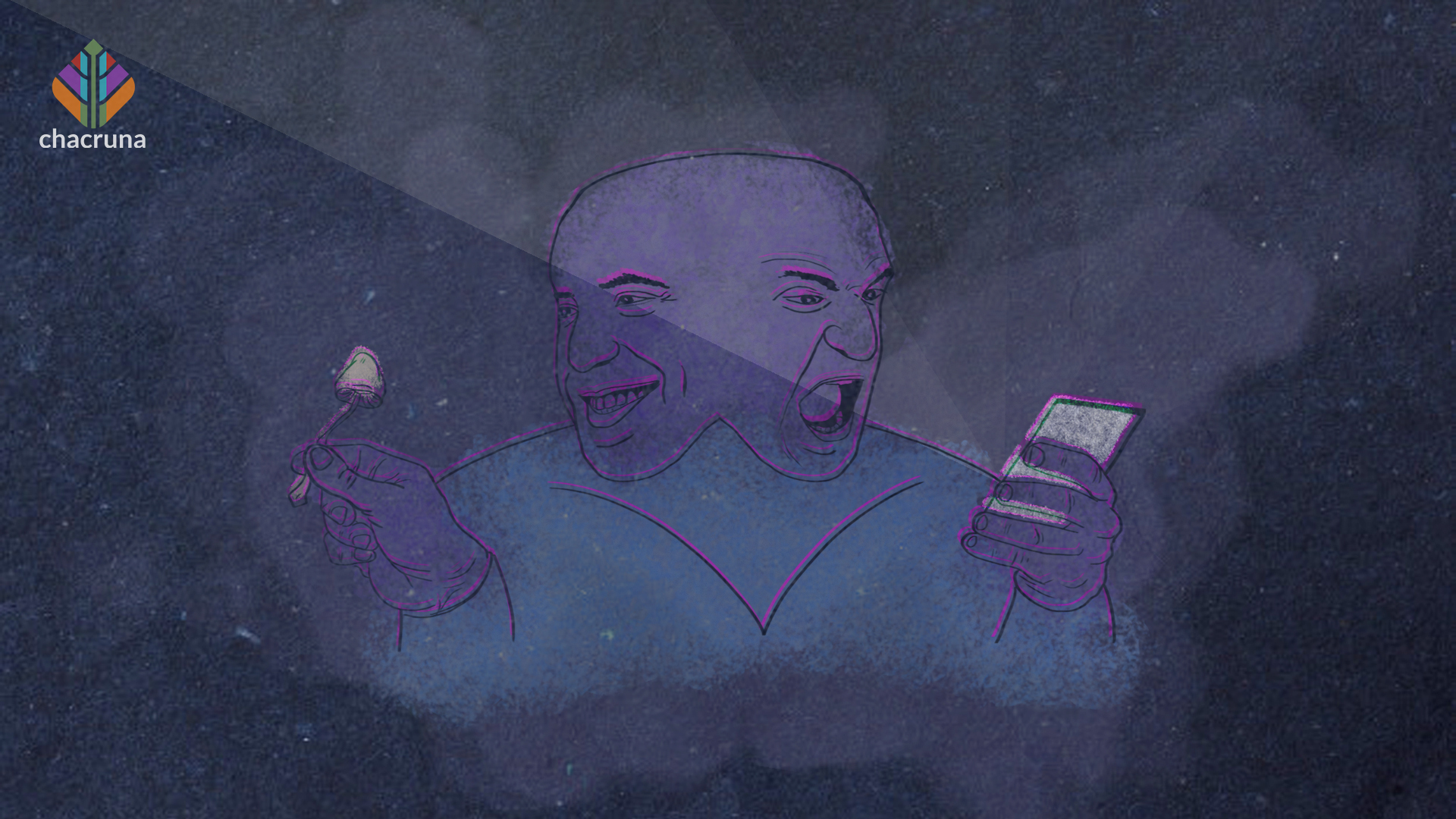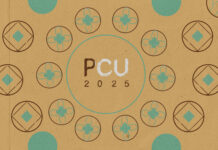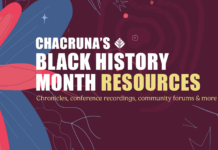- Rethinking Power, Plants, and the Future of Psychedelic Culture - May 9, 2025
- Where Is the Psychedelic Movement Headed Next? - October 15, 2024
- The FDA’s Rejection on MDMA-Assisted Therapy: What is Next for the Psychedelic Movement? - August 16, 2024
- Psychedelic Justice: Creating a Socially Just Psychedelic Renaissance - August 16, 2021
- Hate & Social Media in Psychedelic Spaces - November 5, 2020
- Ensuring Psychedelic Liberty in Black and Brown Communities: Questions to Ponder - April 16, 2020
What #BlackLivesMatter Solidarity Statements Revealed about the Psychedelic Community
Psychedelics are often celebrated for their ability to open one’s heart, create a sense of oneness with nature, shift political values, and facilitate empathy and love for others. Psychedelics show promise for healing racism-related trauma and facilitating restorative justice across conflict groups. Recently, the second author urged psychedelic researchers to reimagine their work and include healing the racism that lives within perpetrators to reduce racism perpetrated against people of color.
Refusal to acknowledge racism within the psychedelic community encourages its spread, but an honest look at this reality can be the first step in becoming the non-racist community we claim to already be.
Although there have been some efforts to create discussion around equity and access in the psychedelic community, there is also a widespread belief that the psychedelic community is welcoming, inclusive, and devoid of racism—that, once ingested, psychedelic substances make it impossible to be racist. This is a myth that many in the community tell to avoid the hard truth that the psychedelic community has the same biased beliefs that are found throughout society, including racist beliefs. Refusal to acknowledge racism within the psychedelic community encourages its spread, but an honest look at this reality can be the first step in becoming the non-racist community we claim to already be.
This piece exposes racism in the psychedelic community as revealed in social media. Several US psychedelic organizations publicly expressed support for #BlackLivesMatter (BLM) and anti-racism efforts in the wake of nationwide protests of the police killing of George Floyd, Breonna Taylor, Elijah McClain, and countless other Black children, women, and men. Although there were positive responses to these solidarity statements, the many hostile responses revealed an ugly truth about the racism that persists in our psychedelic community.
We reviewed Facebook, Instagram, and Twitter social media posts responding to BLM Solidarity statements posted by MAPS, Chacruna, Psychedelics Today, San Francisco Psychedelic Society, Psychedelic Support, Lucid News, DoubleBlind, and Psychedelic Seminars. We coded (see summary below) social media comments that included hostile or highly critical sentiments to either the BLM movement/anti-racism initiatives themselves or the psychedelic organization’s support for these initiatives.
First, it is important to note that the majority of comments applauded the public declaration of solidarity, and hostile comments to solidarity statements were much less frequent. When they occurred, others actively denounced the hostile posts and sometimes even engaged in active debate with the person who condemned the solidarity post. Although not a conclusive finding, when we reviewed the profiles of users posting hostile, negative comments, the comments appeared to be authored almost exclusively by White men—while their opposition came from men and women from a variety of racial and cultural backgrounds.
There were interesting trends apparent when comparing MAPS versus smaller organizations. Smaller, often more alternative psychedelic organizations had fewer comments and reactions to their BLM solidarity statements and those who did respond were almost always supportive. In contrast, nearly all of the hostile, negative comments were in response to the solidarity statement posted by MAPS. This is partially due to MAPS having far more followers than the smaller organizations. MAPS also appeals to a much broader audience who hold a range of alternative and mainstream beliefs. The more mainstream audience is where racist views might be more prevalent within our psychedelic community.
This table summarizes the major categories we coded in negative, hostile comments to psychedelic organizations’ solidarity statements. Although these classifications have some overlap, we believe they are useful for thinking about the beliefs and motivations that fuel anti-racism/BLM opposition.
| Category | Description |
| Anti-BLM | -specifically opposed BLM as an organization/movement. |
| Divisive | -warned psychedelic organizations that they should avoid engaging in a politicized debate because doing so will divide support for these organizations and their efforts to mainstream/legalize psychedelics. |
| Ideological infiltration | -opposed BLM/anti-racism efforts and deemed them unwelcome political ideologies that are infiltrating the psychedelic movement. This was one of the most common types of comments. |
| Spiritual bypassing | -used spiritual, new-age language to imply that anti-racist struggles are a misuse of psychedelics, that intermingling anti-racism efforts and psychedelic work denigrates the value of psychedelics. |
| “Race does not exist” | -argued that race is not a legitimate category for people to identify with and blamed racism on the fact that Black people identify themselves with the illegitimate category of race. |
| Systemic racism denial | -denied that structural racism exists in the US and attributed racist incidents, specifically the high incidence of police killings of Black people, to either rogue cops (the “a few bad apples” analogy) or dysfunctional Black communities and Black culture. |
| Virtue signaling | -accuse organizations of posting BLM/anti-racism solidarity statements to appear as if they care because it is a popular position (virtue signaling). These statements also made it clear that they believed BLM/anti-racism concerns were not important or worthy of attention. |
Many of these categories are found throughout the wider discourse and do not directly refer to psychedelics or the psychedelic community, such as:
- Denial that systemic racism exists, and therefore see the BLM movement as misinformed, hysterical, opportunistic, and/or masking ulterior, sinister political motives.
- Assertions that police violence is about Black pathology or individual bad officers, not systemic, institutionalized racism, or victim-blaming that Black people/communities provoked the violence they experienced.
Because the psychedelic community often asserts that it is free from racism, here we focus on those points that specifically linked their derision of BLM/anti-racism efforts to psychedelics and psychedelic culture.
BLM and anti-racism commitments are seen as indicators of a polluting ideology that conflates identity politics, US political party politics (Democrat/Republican), Marxism, and radical leftism.
Most users posting negative, hostile comments to the BLM solidarity statements framed such statements as reflections of a creeping ideological indoctrination that is destroying the psychedelic movement and society at large. BLM and anti-racism commitments are seen as indicators of a polluting ideology that conflates identity politics, US political party politics (Democrat/Republican), Marxism, and radical leftism. This ideology is labeled as dogmatic and crippling to the free thought and libertarianism that they believe are essential components of psychedelics. Many pride themselves on resisting this hegemonic ideology, thinking critically and rationally in opposition to what they believe is the overly emotive, victimized/victimizing mentality of the closed-minded and brainwashed (e.g., those who agree with anti-racism/BLM). Many use their ostensible clarity and neutrality to argue that anti-racist rhetoric is alarmist and deceptive, or that BLM is a nefarious organization.
These beliefs are paired with accusations that psychedelic organizations are merely virtue-signaling by posting BLM solidarity statements. While making it clear that they believed anti-racism commitments were not important, they accused organizations of expressing support
to appease the public (and burnish their public image) and to capitalize on their cultural capital.
Other comments warn against this perceived ideological infiltration because they believe anti-racism and BLM ideals are antithetical to the core values inherent to psychedelics, psychedelic organizations, and the psychedelic community.
Other comments warn against this perceived ideological infiltration because they believe anti-racism and BLM ideals are antithetical to the core values inherent to psychedelics, psychedelic organizations, and the psychedelic community. These beliefs promoted psychedelics as being apolitical, even elevated above politics. In reality, these assertions are deeply political in their lack of concern about racism and simply reassert a political position that they believe is universal and therefore neutral.
We’re All One
The BLM/anti-racist initiatives are routinely denounced as identity politics—the tendency for people to focus on political initiatives specific to their group (e.g., race, religion, gender, sexuality) rather than traditional political goals with broad appeal—and then dismissed as divisive and a barrier to real solidarity. A common argument is that race does not exist and identifying with a race or fighting racism perpetuates the illusion of race and fuels racial antagonism between individuals. This framework negates claims of racism by people of color and simultaneously blames them for racism if it does exist.
Psychedelics are positioned as being unique tools in facilitating a post-racial transcendence, implying the effects of their use are incompatible with holding racist beliefs.
Psychedelics are positioned as being unique tools in facilitating a post-racial transcendence, implying the effects of their use are incompatible with holding racist beliefs. With this lens, anti-racism efforts are unnecessary and, therefore, associating psychedelics with Black liberation is met with suspicion. The fact that someone could use psychedelics and still believe that racism exists, particularly in the psychedelic community, is offered as proof that these individuals have misused psychedelics. This is a circular argument claiming that 1. the psychedelic community does not need to address racism because psychedelics are incompatible with racism, 2. ergo, if one perceives that racism exists, it is because they misused psychedelics; 3. given this, asking psychedelics (or the psychedelic community) to consider issues of racism denigrates the value of psychedelics for true healing.
While the first two arguments in this category imply racism does not exist in the psychedelic community the third argument implicitly acknowledges that racism is endemic in our community. In this example, individuals warn organizations to “stick to psychedelics” and stop supporting BLM/anti-racism efforts; otherwise, they will lose support and funding from the mainstream psychedelic community. These comments acknowledge that many in the psychedelic community do not value racial equity and would actively fight against racial equity, even if doing so hurt the progression of psychedelic science overall.
For psychedelic science to achieve its full potential, the psychedelic community must deconstruct these myths and understand how they are harmful, misinformed, and racist.
Myth Busting
The comments reviewed in this report have contributed to the shaping of eight myths concerning systemic racism, anti-racism efforts, and their relationship to psychedelics and the psychedelic community. For psychedelic science to achieve its full potential, the psychedelic community must deconstruct these myths and understand how they are harmful, misinformed, and racist. Then we can move forward to become what our community purports to be (racism free) by being an agent of racial justice.
Eight Racist Myths the Psychedelic Community Tells Itself:
- Myth: The psychedelic movement is inclusive and diverse. There is no “diversity problem” in the psychedelic community.
- Myth: Psychedelics are apolitical. Psychedelic users and organizations should stay out of politics!
- Myth: Psychedelics unite us as one. Psychedelics elevate us above race and talking about racism perpetuates the myth that races exist.
- Myth: Psychedelics will fix society and bring us enlightenment; racial and otherwise. Our best path to combat racial injustice and come together as one is to take psychedelics and let them do their magic.
- Myth: Comments supporting BLM and anti-racism are just virtue signaling—attempts to look good to the public because these comments are popular.
- Myth: BLM is a militant organization that uses divisive tactics; given that psychedelics are the antithesis of divisiveness, the psychedelic community should avoid anything BLM-related.
- Myth: Psychedelics are illegal for everyone, so the War on Drugs affects us all equally, regardless of race.
- Myth: If psychedelic organizations continue talking about race and social justice, they will lose mainstream credibility and derail gains already made in mainstreaming and legalizing psychedelics.
We encourage you to make friends with people of color, invite them into your circles, and have conversations about how to bust these myths around racism and BLM. Additional questions to consider are:
- Who are important POC that have made a difference in the history of the psychedelic movement for you?
- How can White people in the psychedelic community be better allies in the fight for racial justice?
- What action can we take to ensure and promote the diversity of the psychedelic movement and the visibility of the many people of color who have played important roles in its formation?
- What have you experienced in your own psychedelic journey related to aspects of your gender, race, ethnicity, or sexuality?
We must remember: We are all responsible for combating racism in the psychedelic community! We have the ability to create the change we seek and to bring our community to its full potential for equality, justice, and radical healing. At the Chacruna Institute, we are engaged in creating access, equity and diversity in psychedelic medicine. Will you join our movement?
Recommended readings:
Art by Mariom Luna.
—
Note:
We thank Nicholas Spiers for his help collecting and analyzing the social media data and his reflections on this paper, and Monnica Williams for her comments. We dedicate this piece to our colleagues who focus on social media and must face hatred daily as they work.
Take a minute to browse our stock:
Did you enjoy reading this article?
Please support Chacruna's work by donating to us. We are an independent organization and we offer free education and advocacy for psychedelic plant medicines. We are a team of dedicated volunteers!
Can you help Chacruna advance cultural understanding around these substances?














